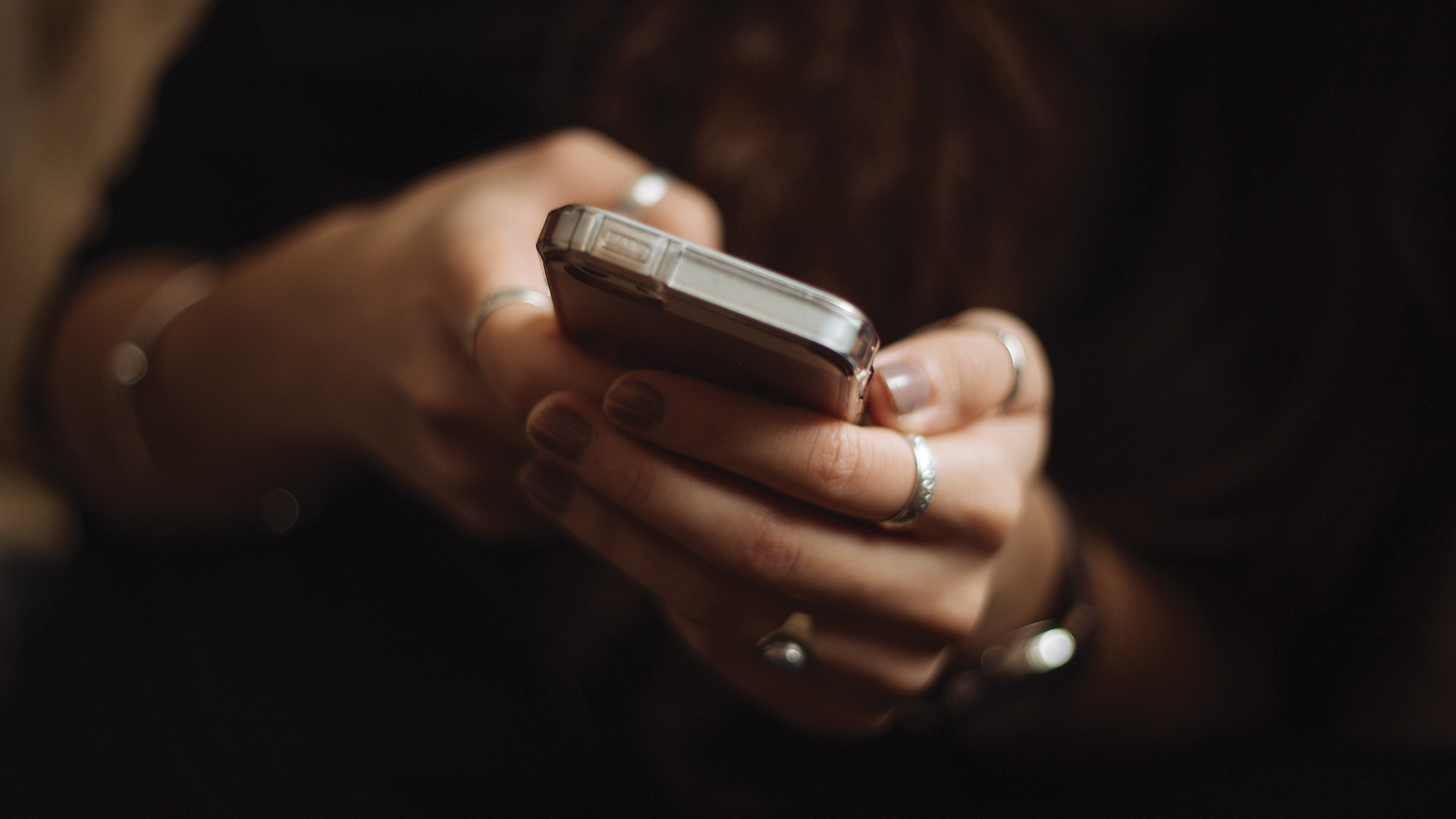During this season, we’ve been reflecting on Lent as an affirmation of humanity—in ourselves and in each other—and, therefore, a call to service. But any attempt to affirm and center humanity, even through the familiar Lenten practice of giving up certain habits, forces us to confront the voices of shame and self-contempt that can be so deeply rooted. Here, Cecelia Romero Likes (MA in Theology & Culture, ‘15) writes about the seemingly simple decision to give up looking at her phone while she’s with her daughter—and about the deep messages of contempt that grow loud in the new silence.
I haven’t been sleeping well lately. I can’t seem to make it through the night without some strange dream clawing at my psyche.
I climb out of bed and try to settle myself again with a book or an hour of scrolling through Instagram. I know that it doesn’t really help, but it comforts me.
Sometimes I can hear my daughter shifting in her room, a sleepy momma slipping from beneath her door. She can sense me, my little werewolf, I joke to myself. Her favorite book to pull from my shelf is Women Who Run with the Wolves. I haven’t read it yet; I bought it years ago because someone said it reminded them of me. Maybe she and the Universe are conspiring to get me to pick it up.
Maybe I will; I do a lot of things because she wills me to somehow.
From day to day, parenting is painfully mundane. It’s a lot of routine and repetition; the same games, the same books, the same lessons. My iPhone has become my constant companion, ready to entertain me at any moment my daughter might happen to look away. Despite reading multiple articles on the subject, I recently decided to give up checking my phone while I’m with her based on her behavior—not outbursts or tantrums, only her own growing desire to whittle away her hours in front of a screen.
It’s been a difficult sacrifice to make, putting my phone away while I’m with her, and I have yet to make it through a day successfully. My social media accounts do more than keep my boredom at bay; they help me to feel involved in the outside world, keep me from getting too lonely. They also overwhelm me, distracting me with their content long after I’ve put my phone down. And, I’ve realized, they keep me from facing the darkest parts of myself.
I don’t have very nice things to say, or rather think. I didn’t grow up in a home dripping with affection—for anyone, really. My family taught me how to protect and defend myself; my step-father would quiz me daily about what I noticed on my walk home from elementary school.
You always, always have to be aware of your surroundings, his voice echoes when I find myself getting too familiar with my environment.
My mother isn’t an unkind woman, but one for whom things, people, are rarely good or good enough. Her nature comes easily to me—my inheritance, maybe.
When I’m online, it’s easy for me to direct my hatred at unseen others: strangers who add antagonizing comments to the posts of friends, old high school classmates gleefully announcing their Go Fund Me donations toward Trump’s wall. I project my doubts onto other artists who are just starting out, and worst of all, I pour out my bitterness over the artists who are succeeding and who I deem lesser than me. I count these amongst my ugliest thoughts.
Without my digital scapegoats, my vitriol has the clearest path to its true target: me. The first thought that popped into my head the day that I started my screen-free experiment was, Boy, you’re a shitty mom. It was closely followed by its sibling thoughts about my appearance, my work ethic, my abilities, the invalidity of my dreams. There was no real reason for these thoughts, nothing in the moment to motivate them to come. They don’t really need a reason, they live with me, are a part of me. They’ve just been waiting for a quiet moment to speak.
“Without my digital scapegoats, my vitriol has the clearest path to its true target: me.”
If my time at The Seattle School taught me anything, it’s that all of us feel this way. Some more than others, but all of us still. It’s part of what it means to be human in this world. We all have shortcomings, doubts, and fears, and they are ready to contend with us. Some have merit and some don’t, but we will never be able to distinguish what’s true from what isn’t unless we face the parts of ourselves that bring us the most shame. There’s no healing, no transformation without reflection. It can be painful and we may not be ready at any given point; it could take years, a lifetime even. But we have to be aware that our self-contempt paints an incomplete picture of who we are.
I pride myself on being a woman with a keen sense of clarity about who I am, but I’ve lived most of my life unable to see my own goodness. I’ve needed to hear about it from other people. Even then, I found a way to disseminate their words, convincing myself that their view of me was obscured. But it’s time to take off my own blinders, to seek out the goodness others have been telling me is there on my own.
Those negative thoughts are less intimidating when I’m able to see myself more clearly. When partnered with a more benevolent self-perspective, they can lead me into compassion and empathy, instead of shame and self-hatred.
This too is part of what it means to be human in this world: the amalgamation of the darkness and the light inside of us. They don’t have to be at war with one another, they can live symbiotically.
I used to think that living a good life meant following this rigid moral code that God had prescribed for us, one in which there was no place for darkness—often considered “impurity” or “sin.” But I’ve come to believe that living a good life means becoming more human, softer, more given to making mistakes. More able to learn from them, too.
This paradigm shift is right on time. I can never teach my little werewolf how to be fully human until I learn how to be one myself.


